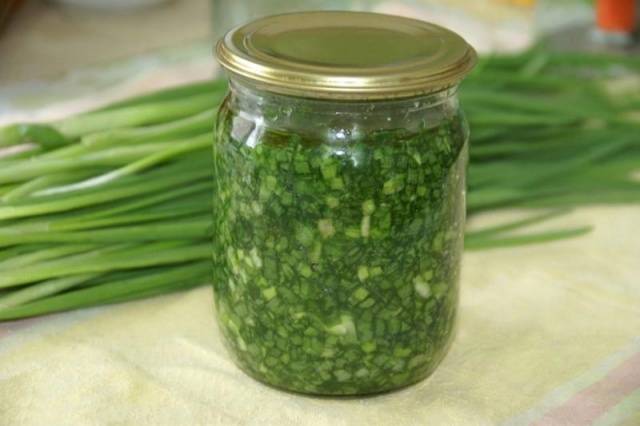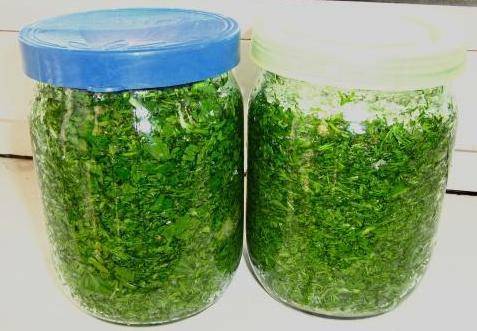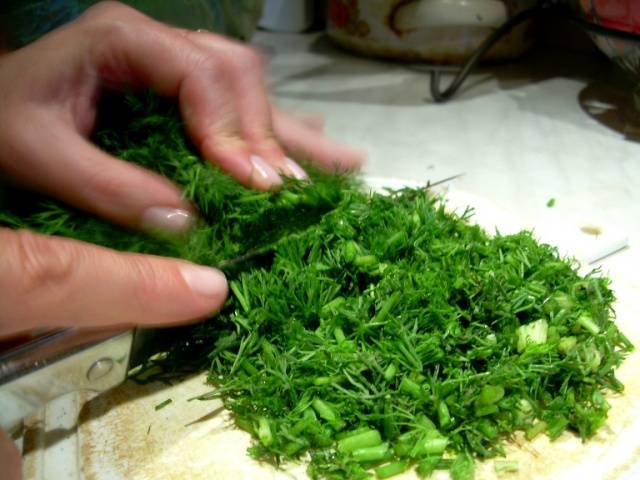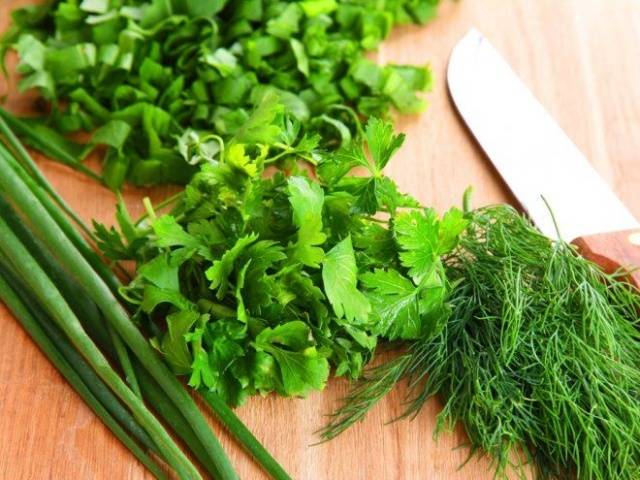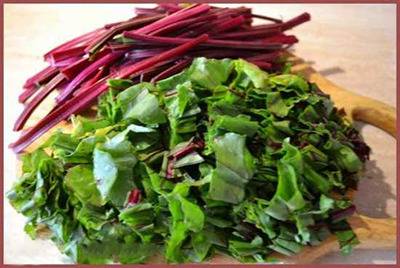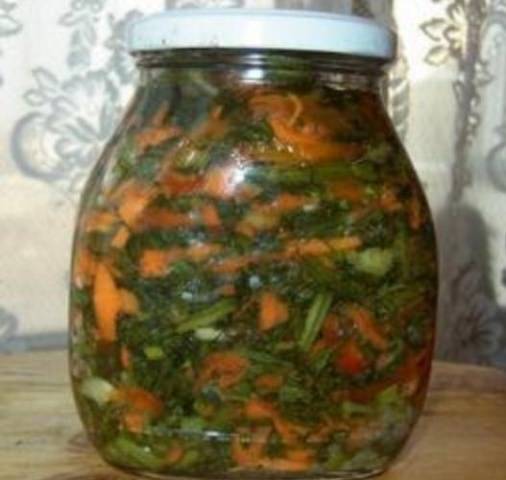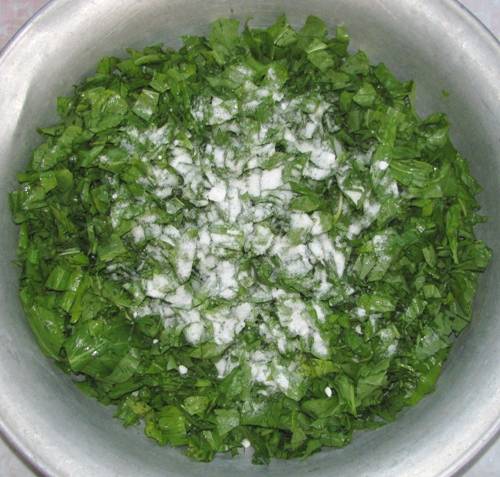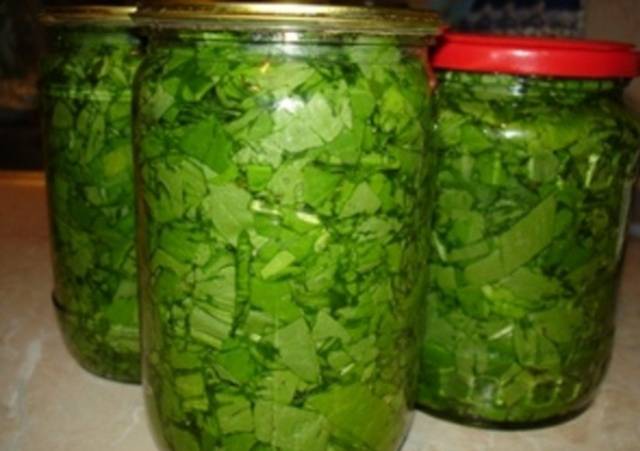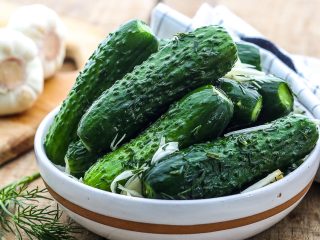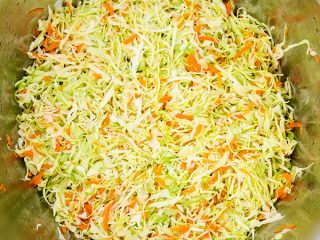Content
In summer, the garden is full of fresh, fragrant herbs. But even in winter I want to please with homemade vitamins. How to be? There are many ways to harvest green leaves for the winter. We will talk about the rules for salting. It should be noted that salt conserves up to 70% of nutrients and vitamins.
Often, our readers, especially young hostesses, are interested in how to salt greens for the winterwhat herbs and plants can be used, how long the workpieces are stored. We will try to tell about all this in detail.
What greens are suitable for salting
Salted for the winter at home any spicy herbs and leaves growing in the garden. You can save in banks:
- dill and parsley;
- onion and garlic feathers;
- onion and garlic arrows;
- cilantro and celery;
- carrot and beet leaves;
- sorrel, rucola and other herbs.
Preparing for salting
You need to cut off twigs and leaves from green plants just before salting. They are washed in several waters to remove the slightest grains of sand and insects. In the last water, the herbs are left for two hours to remove the bitterness. After that, dill, parsley, celery, cilantro, other herbs and leaves are laid out in one layer on a clean towel to dry.
Do not cut twigs and leaves too finely for pickling in jars for the winter, the pieces should be medium. Some of the sprigs of dill, parsley, celery or cilantro can be left intact. It is an excellent material for decorating dishes in winter.
You can harvest green leaves and herbs in different ways: use dry salting or pour brine on the workpiece.
Put the prepared slices into sterilized jars. The best container is 0.5 liters. You can close the jars with metal or nylon lids: in both cases, it is stored excellently.
How to salt greens
After you have cut the twigs and leaves and jars are already ready, they start salting.
Consider options with dry salt and brine.
Dry ambassador
Basically, when salting herbs for the winter, the recipes are almost identical. In order for the green mass to retain all its qualities and not ferment, it is necessary to take 250 grams of salt per 1 kg.
And now about the principle itself:
- Harvested, washed, dried herbs and leaves are cut on a ceramic or wooden plank, put in a large basin. You can add salt to the total mass, mix well, and then put it in jars, tamping the layers.
- There is another option: pour dry greens into a prepared container: a layer of greens - a layer of salt and so on to the top. Tighten the greens with a crush.
- Place 1-2 cans in the room. During this time, the dill, parsley, or other herbs will settle. You can always report back to the bank with a new portion.
Many housewives are filming the process of pickling greens. We suggest seeing how this is done:
Salting in brine
If you want to always have almost fresh greens on hand in winter - carrot leaves, beets, onion and garlic arrows and various spicy herbs, use brine for the blanks.
How to pickle green twigs and leaves in brine, what you need to know? There are two options for harvesting herbs in brine:
- Prepared herbs and leaves (separately) are placed in an enamel pot, poured with water, salted to taste, brought to a boil. Cook for no more than 5 minutes. The resulting mass is immediately poured into sterile jars and rolled up.
- The greens are put in a container, poured with boiling brine (salt to taste) and covered with metal lids.
Pickling recipe with brine
For a kilogram of herbs and green leaves you will need:
- water - 0.3 l;
- 8% vinegar - half a liter;
- salt - 30 grams;
- lean oil - 50 grams.
First, prepare the brine: after boiling the water, add vinegar and salt. With this brine, you can salt beet, radish and carrot tops, onion and garlic arrows. You need to cut twigs and leaves in large quantities, put them directly into jars. Pour greens with boiling liquid, add oil. Immediately roll up, turn upside down and wrap. When the jars are cool, they are stored in any cool place.
Assorted for the winter - recipe
Salting greens for the winter is an interesting and exciting process that gives room for imagination. Many housewives combine multiple products. It turns out a surprisingly tasty preparation, suitable for preparing first and second courses. This assortment is added in the last minutes of cooking.
We will need:
- parsley and dill leaves - by a kilogram;
- leek - kilogram;
- celery leaves - 500 grams;
- carrots and ripe tomatoes (red and yellow can be used) - by a kilogram;
- table salt - 1 kg.
The method for preparing salted herbs with vegetables is simple:
- After thorough washing and drying, the greens are crushed.
- Grate the carrots on a coarse grater.
- Fleshy tomatoes are cut into strips.
- Mix with salt.
- Lay out the blank in jars in layers: first greens, then carrots, again greens - tomatoes, until the container is full. Close with a nylon lid or parchment paper. The workpiece is stored in the refrigerator.
Salt sorrel
If you want to pamper your family with green cabbage soup, pies with delicious filling in winter - salt sorrel in jars. This will take a minimum of time, but you will be provided with vitamins.
For harvesting, according to the recipe, you need a kilogram of sorrel and 50 grams of table salt (not iodized).
Washed and dried sorrel can be chopped finely or coarsely as you like. We put the workpiece in a large container and add salt. Stir with your hands, but do not press on the leaves.
The mass must stand for at least an hour for juice to appear. If it is not enough, let it be salted still. After that, lay out the sorrel in sterile jars, tamping slightly. Cover with regular lids or roll up. You can store it in a cellar or refrigerator.
As you can see, preparing sorrel for the winter in banks is not at all difficult.
Instead of a conclusion about the benefits
Salting herbs and leaves for the winter is a great option:
- First, you will be provided with fresh greens throughout the winter.
- Secondly, almost one hundred percent of vitamins and nutrients are stored in it.
- Thirdly, the taste and color of dill, parsley, celery and other herbs does not change.
- Fourth, salt prevents the growth of bacteria that cause the fermentation process.
When cooking, if you use salted herbs, you do not need to add salt - there is enough salt in it. So, go ahead and with a song on the preparation of greens for the winter.
